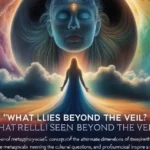Midnight, often referred to as the “witching hour” or the “hour of the soul,” carries profound symbolism across various cultures and disciplines. It marks the end of one day and the beginning of another, symbolizing transitions, mystery, and renewal. This article delves into what happens after midnight, exploring its spiritual, psychological, and cultural implications.
The Symbolism of Midnight
Midnight represents a threshold between the known and the unknown. Historically, it has been a time associated with heightened spiritual energy. Many cultures believe the veil between the physical and spiritual realms thins after midnight, making it an ideal time for meditation, rituals, or prayer. This concept aligns with beliefs in ancient traditions like numerology, where numbers like six and seven—linked to cycles and balance—gain prominence at this liminal hour.
Midnight’s Spiritual Implications
- Transformation and Reflection
Midnight serves as a metaphor for death and rebirth. It offers a moment to reflect on the past and set intentions for the future. Practices such as journaling and visualization are particularly effective during this time, as the stillness aids in clarity and self-awareness. - Divine Encounters and Mysticism
In religious contexts, midnight is often depicted as a time of divine intervention or spiritual preparedness. The biblical account of Paul and Silas singing hymns in prison at midnight exemplifies triumph through faith during adversity. - Rituals and Energy Work
Midnight rituals, including candle-lighting and chanting, are integral to many spiritual traditions. These practices aim to harness the transformative energy of this hour to manifest change, release negativity, or invite guidance.
Cultural Beliefs Around Midnight
Different societies imbue midnight with distinct meanings:
- Western Traditions: Midnight is tied to the supernatural, such as ghost stories and folklore.
- Eastern Beliefs: It is often considered a moment of yin energy, symbolizing rest and introspection.
- Religious Significance: Midnight vigils are common in Christianity, representing watchfulness and readiness for divine revelation.
Psychological Insights: Why Midnight Matters
From a psychological perspective, midnight taps into the human mind’s need for milestones. It offers a pause, allowing individuals to evaluate their lives. The reduced distractions of the late night enhance problem-solving and creativity, making midnight a preferred time for brainstorming or planning.
Midnight in Popular Culture
Popular media frequently romanticizes midnight. Films, books, and music often portray it as a magical or fateful moment. This cultural representation reinforces its aura of mystery and significance.
Comparison of Beliefs and Practices After Midnight
| Aspect | Spiritual Beliefs | Cultural Practices | Psychological Effects |
|---|---|---|---|
| Energy and Mood | Heightened spiritual connection | Emphasis on supernatural tales | Calm introspection or creativity surge |
| Common Activities | Meditation, prayer, and rituals | Ghost stories, stargazing, celebrations | Journaling, planning, problem-solving |
| Symbolism | Renewal, transformation, divine timing | Mystery, transition, threshold crossing | Closure and preparation for a new day |
Practical Applications of the Midnight Hour
- Harnessing Creativity: Use midnight for brainstorming or working on personal projects when distractions are minimal.
- Meditation and Mindfulness: Engage in reflection or mindfulness to connect with deeper thoughts or spiritual energy.
- Journaling: Reflect on goals and aspirations during this peaceful time to enhance clarity and focus.
Final Thoughts
Midnight is more than just a time on the clock—it’s a symbolic, spiritual, and psychological phenomenon. By understanding its significance, we can better appreciate the unique opportunities it offers for transformation and growth.
For a deeper dive into midnight’s mystical significance, explore this video on spiritual energy during the witching hour.












